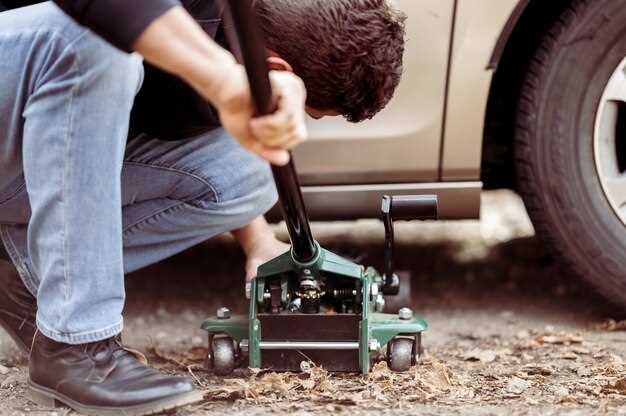
Selecting the right trailer hitch for your vehicle is crucial for ensuring safe and efficient towing. The hitch you choose should be compatible with your vehicle’s make and model while also meeting your specific towing needs. However, with various options available in the market, the process can become overwhelming. It is essential to understand key factors such as capacity, type of hitch, and intended use to effectively narrow down your choices.
The first step in this selection process is determining your vehicle’s towing capacity. This is the maximum weight your vehicle can safely tow, and it is critical to adhere to this limit to avoid potential damage to your vehicle and ensure your safety on the road. You can usually find this information in the owner’s manual or on a label inside the driver’s side door. Knowing your towing capacity will guide you toward the appropriate hitch type and configuration.
Once you have established your vehicle’s towing capacity, you can explore the various types of hitches available, including receiver hitches, fifth-wheel hitches, and gooseneck hitches. Each type serves different purposes and is designed for specific towing scenarios. Understanding these differences will help you select the best hitch tailored to your requirements, providing you with the confidence to tow safely and effectively.
Understanding Your Vehicle’s Towing Capacity

When selecting the best trailer hitch for your vehicle, it is essential to understand its towing capacity. Towing capacity refers to the maximum weight your vehicle can safely tow, which ensures that you do not exceed its limits while using a hitch and trailer. This capacity varies based on several factors, including the vehicle’s make, model, engine size, and drivetrain configuration.
To determine your vehicle’s towing capacity, consult the owner’s manual, as manufacturers provide specific guidelines for each model. This information typically includes the Gross Vehicle Weight Rating (GVWR) and the Gross Trailer Weight (GTW). The GTW indicates how much weight the trailer can weigh, including cargo, while the GVWR encompasses the total weight of the loaded vehicle and trailer combined.
Another important factor is the tongue weight, which is the downward force exerted by the trailer on the hitch. A proper balance between the trailer weight and tongue weight is crucial for safe towing. Generally, the tongue weight should be around 10-15% of the total trailer weight. Exceeding this weight can lead to handling issues and compromise safety.
It is also vital to consider additional equipment that may affect towing capacity, such as transmissions, suspension upgrades, and braking systems. Vehicles equipped with towing packages often come with enhanced features that improve performance and safety when using a hitch and towing a trailer.
In summary, understanding your vehicle’s towing capacity is paramount for selecting the appropriate hitch and ensuring a secure towing experience. Always verify your vehicle’s specifications to prevent accidents and potential damage while on the road.
Choosing the Right Type of Trailer Hitch for Your Needs

When it comes to towing, selecting the appropriate trailer hitch is essential for ensuring safe and efficient transportation. The right hitch will depend on several factors, including the type of trailer you wish to tow, the weight of the load, and your vehicle’s towing capacity.
There are primarily five types of trailer hitches: Class I, Class II, Class III, Class IV, and Class V. Each class is designed for different towing capacities, ranging from lighter trailers to heavy-duty loads. For instance, a Class I hitch is suitable for small trailers with a maximum capacity of about 2,000 pounds, while a Class V hitch can handle over 10,000 pounds. Knowing your vehicle’s towing capacity is crucial as it dictates the maximum weight you can safely tow without risking damage or accidents.
Besides considering weight, the type of trailer will also influence your choice. If you plan to tow a motorcycle or a small utility trailer, a lighter hitch may suffice. However, for towing larger items such as boats or campers, a more robust hitch will be necessary. Additionally, the hitch must be compatible not only with your vehicle but also with the trailer’s specifications.
Safety features are another important aspect to consider. Some trailer hitches come equipped with mechanisms such as sway control and weight distribution systems to enhance stability while towing. Investing in these features can significantly improve your towing experience, making it safer and more manageable.
Lastly, installation and ease of use should not be overlooked. Some hitches are easier to install and detach than others, which can save you time and effort, especially if you plan to switch between towing and regular driving frequently. Always consult your vehicle’s manual and, if necessary, seek professional help to ensure the right fit and installation.
Installing and Maintaining Your Trailer Hitch Safely
Installing a trailer hitch requires careful consideration to ensure it meets the necessary specifications for your vehicle’s towing capacity. Before beginning the installation process, familiarize yourself with your vehicle’s owner’s manual and the hitch manufacturer’s guidelines. Selecting the right hitch involves understanding the weight ratings, including the maximum load the hitch can safely support when towing a trailer.
When installing the hitch, ensure you have all the necessary tools and hardware. Start by securing the vehicle on a level surface and utilizing wheel chocks for safety. Align the hitch with the mounting points under the vehicle and follow the manufacturer’s instructions for proper attachment. Make sure to tighten all bolts and fasteners according to the specified torque settings to prevent any loosening during use.
After installation, regular maintenance is essential for safety and optimal performance. Periodically check the hitch for signs of wear, rust, or damage, particularly after extensive use. Examine the electrical connections, if applicable, to ensure they are functioning correctly, as these are crucial for brake lights and turn signals when towing a trailer. Proper lubrication of the moving parts will also help maintain functionality and prevent wear over time.
When ready to use your trailer hitch, ensure that the trailer is properly attached and secured before setting off. Always double-check the connections and trailer lights for operational integrity. Adhering to local towing regulations and ensuring you do not exceed the vehicle’s towing capacity is vital for safe transportation.





